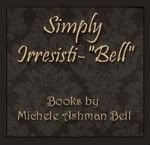
A little bit about the book, Souls of Valor
Elizabeth Randolph is a newly baptized member of the
Church of Jesus Christ of Latter Day Saints. She has left all she
knows behind in Boston, Massachusetts to become a teacher
in a one room schoolhouse in Grays Lake, Idaho. Elizabeth
struggles to adjust to her new home and is starting to succeed
when Alex Cannigan, an embittered, former soldier wounded in
a battle in the First World War, crosses her doorstep.
Elizabeth attempts to help Alex overcome his pain by
teaching him about God. As trust slowly develops between
the two, a devastating pandemic sweeps the world killing
millions. Alex and Elizabeth both learn that the only way to pull
themselves from the darkness is to follow God into the light.
Yes, what a nailbiter! Let's get to know Trudi better now.
M.B.: When did you first know you wanted to be an author?
Trudi: When I was very young, I remember my father reading the Hobbit to me and my siblings for Family Home Evening. I loved the story and all of the rest of J.R.R. Tolkien’s Lord of the Rings trilogy. From that moment on, I was hooked on books. I love to read. It opened up a fascinating world to me that I otherwise would know nothing about. I never really thought about being an author, but I always had stories running through my mind. After telling my brother yet another idea I had that would make a great book, he told me that I should try actually writing one. So, I did.
M.B.: What is your writing and educational background?
Trudi: I have my bachelor’s degree in English. Since I love to read and write, it seemed natural for me to go into English. After I graduated, I was hired by a computer software company to write technical manuals. Although that type of writing isn’t as exciting as writing fiction, it has helped me hone my writing skills over the years. I have been a technical writer for 14 years and have worked for several different computer software companies.
M.B.: What makes you passionate about writing?
Trudi: I think everyone needs a release and writing is one of mine. When I write, I can discover new things about my world, especially when writing historical fiction. I had to do a lot of research when writing Souls of Valor and learned a great deal about the early 20th century. I also love to think of the great “What If?” What would happen if I walked out the door and a new world was before me? Writing helps me to achieve that new world. It opens my mind to new possibilities.
M.B.: What was the pathway like for you to get your first book published?
Trudi: My first work of fiction, Souls of Valor, was actually based on my grandmother. She lived during the time period when World War I was fought and had the 1918 flu. Although she didn’t die, she lost most of her hearing from it. Even though I had other ideas for a novel, this was the first one that held my attention. The story that I wrote is mostly my imagination, but it was her story that triggered the idea. There are a lot of people who know nothing about the 1918 flu, yet over 50 million people died from it. That actually was the reason that the First World War ended. When I decided to write this book, my first thought went to the drama of the 1918 flu. I thought of writing about the actual flu and how it changed into a hemorrhagic disease. As I studied more about the flu, though, I realized what was really important about that period of time. It was the people who were affected by both World War I and the 1918 flu. So, my story concentrates on the people who lived during that time period. I have attempted to capture what the world was like for them and how devastating both the war and the flu were to those people. I also attempt to emphasize how people were able to triumph over their trials.
Once I finished writing the book, I decided that it was worth a try to see if someone would publish it. I had many people read through my book before I felt I could send it to a publishing company. Once I had it where I wanted it, I sent it to an LDS publishing company. They read it and liked it, but after a year of debating, they decided in the end to not publish it. So, I decided to try a second publisher and see what they thought of it. At that point, Granite Publishing was only printing non-fiction works but told me they really would like to eventually publish it. I heard from them this year, when they decided the market was ready for a book like mine. They decided to take a chance on me, and I am extremely grateful to them for doing so.
M.B.: Were you ever discouraged along the way? If so, how did you deal with it?
Trudi: Writing can be discouraging. First you have the idea, which seems great. When you attempt to put that idea down on paper, it doesn’t always work the way you want it to, which can be frustrating.
It is also very discouraging when you work for a year with a publishing company who keeps telling you that they will publish your work once you change certain aspects of the story. So, you change the story and resend it to them and are told yet again that they will publish it if you change another aspect of the story. After this went on for an entire year, I finally received a generic rejection letter from them. That was extremely discouraging. The company dangled a carrot after me for a year, and then yanked it back at the very end. At that point, I didn’t know if I wanted to even try submitting it again. But I decided that I’d take one more chance on that particular book, and it worked out great. So, don’t let rejection get you down. If one publishing company doesn’t want your work, try another one.
M.B.: What is your writing schedule like?
Trudi: My writing schedule is sporadic. Being a technical writer, I write every day. When I get home at night, it is sometimes hard to want to write some more. So, I usually end up writing late at night a couple of days a week. The one thing I have found is that you do have to just make yourself sit down and write some days. Otherwise, it is easy to get into the habit of not writing.
M.B.: Where do your ideas come from? How do you know the idea is
good enough to write a book about it?
Trudi: Ideas just seem to run through my mind. I am constantly asking myself, what if this were to happen to someone. I think it is hard to know if an idea is good enough to write about until you start writing. It is my belief that all ideas could eventually be great stories, if they are handled right. But some ideas make better short stories than novels. You may not know that, though, until you start writing the idea out.
M.B.: When did the idea for this book first come to you?
Trudi: The idea for this book came to me several years ago when I actually had a dream about my grandmother. It was a very vivid dream about her struggles during the 1918 flu and how hard it was to lose her hearing. When I woke up, I decided I should write a book. Once I started writing it, I just couldn’t seem to stop until the story was done.
M.B.: What do you hope readers will get from this book?
Trudi: I hope that readers will gain an understanding that although we may go through really hard things on this earth, we are not alone in our struggles. Heavenly Father will help us through our hard times, if we let him. Usually, the tough things are not removed from our lives, but we can get through them and become better people because of those experiences.
M.B.: What is your process of brainstorming a story? Do you just sit
down and write, waiting to see what happens next? Or do you outline
first?
Trudi: My process is to sit down and start writing. I was never good at outlines. When I was in college, the teachers were always telling us to write an outline first and then write the story, but my mind doesn’t work that way. I usually ended up creating the outline after I wrote the story.
I have figured out that it is a good thing to create character profiles, though. They can help you figure out what you named your character, what their eye color is, their hair color and who their parents were. When I found myself having to scroll back through the story to remember those things, I discovered that it is good to keep track of the characters in a separate document. That way, you can just reference that document, rather than having to scroll through your writings to figure out what you called the character who ran into Elizabeth at the store.
M.B.: Do you ever experience a snag in a story, a form of writer's
block? If so, how do you deal with it?
Trudi: It is frustrating to have a great idea for a story and be unable to move that story along, because you can’t get your mind to think of where to take it next. Usually, when I hit that wall, I take a break from writing. I have a lot of other interests, including making my own lampwork beads and fused glass jewelry. When I feel frustrated with my writing, I usually will move to my glass work. After a while, another idea will enter my head that helps progress the story.
M.B.: Do you need absolute quiet to write? Do you listen to music when
you are writing?
Trudi: I actually like to write with background noise. I found when working at a computer company, that it can become really quiet while everyone is busily working. I also found out that it drives me nuts. So, I usually will listen to music when I write, whether it’s at my computer software job or when I’m home writing fiction.
M.B.: What kinds of inspiration do you use during your story creation periods?
Trudi: Life inspires me. Beauty inspires me. The potential of a new world opening up and becoming real to someone else who reads my words inspires me. There are ideas everywhere. When I am creating my story, I watch people and see how they act. I ask questions of people. I do a lot of reading. I can’t go to sleep at night without reading a book, so when I read a book, other ideas open up to me.
M.B.: Who has made the greatest difference for you as a writer?
Trudi: My parents always encouraged me to read, which is actually the biggest factor in why I write. My mother was always quoting poetry when I was young, which had a huge influence on me.
I must also say that when I was in high school I had a teacher who made me feel as if I couldn’t write. Because of her, I felt that writing was not one of my talents. When I decided to go into English in college, that was my one hesitation in choosing English as a major, because I didn’t think I could write based on that one teacher’s opinions. When I got an A, and not only an A, but praise for the first paper I wrote in college, I realized that teacher was wrong and that I could write. It is amazing how much another person can influence what we think about ourselves.
M.B.: Do you use a critique group during the writing process? Why or why not?
Trudi: After I finish writing, I have several people read through my writings to see what they think. It is important to have other people read what you write to make sure that it doesn’t just make sense to you.
M.B.: Which of your books is your favorite, and why?
Trudi: Since Souls of Valor is my first published work of fiction, that has to be my favorite so far. Although, I am working on several other stories that could become my favorites when I get them finished.
M.B.: What words of advice do you have for other writers who desire to
have their manuscripts become books in print?
Trudi: I think that the best advice that I ever received was from my brother. He told me that I should write, because I am a writer. If you are a writer, you write because you love writing. That should be the reason that you write, not to get published. It may sound strange, but I believe once you let go of the stress of trying to get published, it is easier to write something that is worth publishing. Sometimes we get overly concerned about whether our works of writing will ever be read by anyone but us. That stress can be our worst enemy. So, write those stories and don’t worry about whether it will be published.
M.B.: Any final words you would like to share
Trudi: I am grateful that I was able to write a book that someone thought worthy of publishing. I hope that everyone enjoys reading it as much as I did writing it and that it will open up a world to someone that they didn’t know existed.
M.B.: Where can our readers go to find your books and order them?
Trudi: You can order my book, Souls of Valor on Granite Publishing’s website at: http://www.granitebooks.com/catalog.html?Iit=2821&Ict=4. It should also be in Seagull Books and in Deseret Book in the near future.
WINNERS ANNOUNCED:
The two winners of Donald Anderson's book, "Hanging by The Thread" are . . .
Robin Ribbit and,
Cami Checketts
Email me at micheleabell at gmail dot com and I will get your books sent.
NEXT WEEK'S AUTHOR SPOTLIGHT . . .
(DRUMROLL ....................)
*****JANETTE RALLISON*****

I'm just so excited! She'll be giving away a copy of her new book!!! Don't miss it.




























































-page-001.jpg)














3 comments:
I didn't know that about her! I went to USU too and graduated with a degree in English and now I am a technical writer. She gives me hope that someday I can finally write and publish a novel! :)
Great interview with a talented new author. (And no, Michele, my sister didn't pay me to say that.) ;) Way to go Trudi!!! We are proud of you!
I enjoy how you do your interviews so we can get to know the authors and how they came to be.
I'm excited to be a winner. I emailed you.
Post a Comment